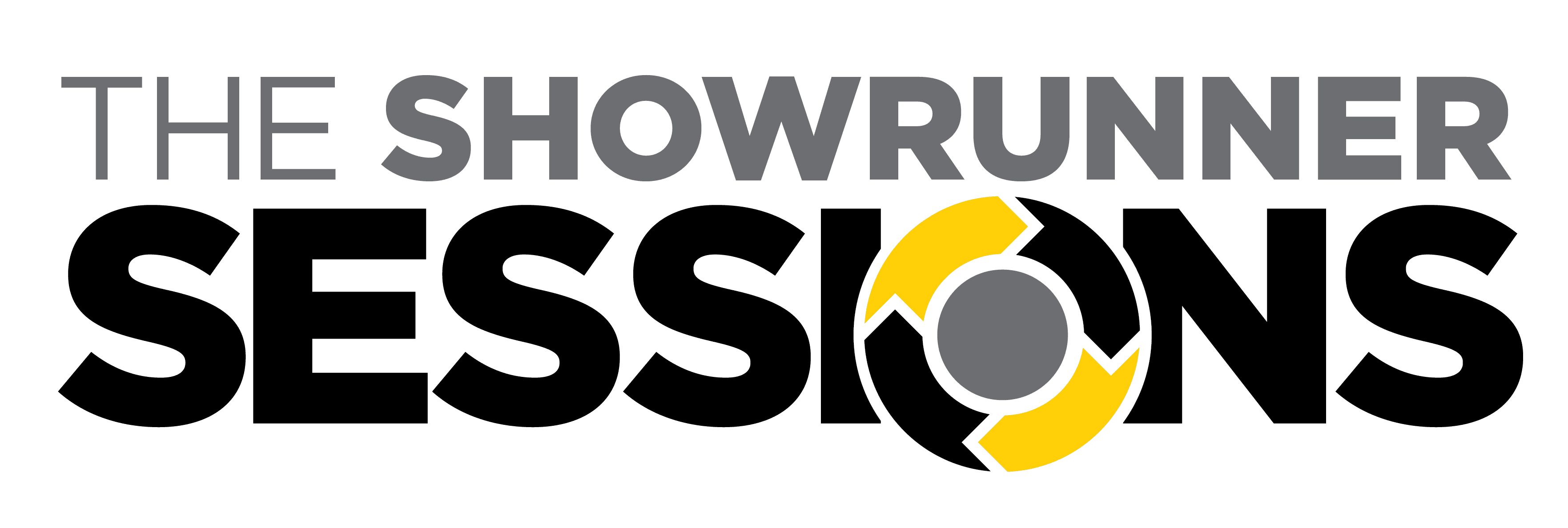“Awesome!” Podcasters, Here’s What to (Actually) Say When a Guest Stops Talking
Interviewing a guest on a podcast can be a delicate dance. (That’s how I think of it, anyway. It’s not a straight march forward, asking question after question. It’s more like a dance, and you are the leader. You’re setting the tone, watching the pacing, leading people one way, then back another, then visiting one area, then another. Questions, follow-ups, personal stories, and more — it’s a vast array of subtle and not-so-subtle moves meant to yield one coherent experience for those on the sidelines. GOOD LUCK!)
In your next delicate, intricate dance, try paying attention to one moment in particular and see what you discover — about yourself, and about your final episode. That little moment?
What the heck do you say after the guest stops talking?
This is where the verbal tics tend to come pouring out of your subconscious. We don’t even seem to control it. The thing is, if you had a plan, you’d create a more seamless experience for the listener, as well as extract better insights and stories from your guest. But to do that, you first need to recognize and embrace: You have a problem.
For years, I had a big, big problem. I would say “got it” after everything my guests said. I didn’t say it after the occasional quote. I didn’t say “got it” after the things I really, truly “got.” Nope! I said it after every. Single. Stinking. Quote.
It’s not just me. Maybe you have your own. The producers I’ve collaborated with have theirs. Hosts on whose shows I’ve appeared have theirs, too. Some say, “Awesome!” Others say, “Makes sense.” Occasionally, you get the cringe-worthy Awkward Pause/Stumble combination:
(Awkward Pause.) Um, yeah, uh … right, so…
Hoo boy. Not good.
When a guest finishes their latest thought, it’s paramount to the final listener experience that the host have a plan. I like to try any of three possible responses, three little dance moves. I call them the 3 Ds:
Distill, dig, or don’t even…
Distill
When a guest finishes a thought — particularly a lengthy one — you’re in the unique position to ensure the listener catches all the best value from what they just said. In fact, you’re always in the unique position to ensure the listener doesn’t miss stuff. That’s the job of the host.
Great hosts act like guides into the episode. Sometimes, they will “signpost,” which is when you overtly call out a detail you want people to pay careful attention to, sometimes before you play a clip, sometimes after.
(An easy example is the common, somewhat cliche, but still useful approach of flagging one key detail that a guest just shared, immediately after they shared it, speaking directly to the listener when you do so: “Did you catch that? She said ‘XYZ.'”)
On a podcast, listeners are always slightly behind the words being said. It takes a micro-moment for any of us to receive a bunch of words piped into our ears, understand what the words are, then turn the words into meaning. As a result, it’s easy to fall behind — especially if anything was unclear. You could be sitting there during your interview thinking, “This is all great stuff!” — when in reality, the listener missed some great stuff because they were confused by something that happened earlier, or they were struggling to keep up with a fast talker, or the guest’s answer was so dense, they were pondering their first point and missed the next seven things in the same quote.
All of this to say: When a guest finishes speaking, one very useful response for the listener is for you, the host, to distill something you just heard. (As a bonus, you’ll often find that the guest replies to your attempt at distilling with another example or a clarification you missed — crucial to the final understanding of the topics you’re exploring.)
Distilling also helps you put a little button on the end of the moment. You can restate a key point from within the quote, or carefully re-phrase their words in order to tie it more overtly to your listener’s life (which, as the host, you’ll understand more deeply than any guest ever could).
But what happens if you don’t fully understand or even agree with something the guest just said? It’s time to bust out a shovel…
Dig
Did you not fully understand something? Ask for clarification.
Did the guest speak in platitudes or generalize something that requires specifics to bring to life? Ask for an example.
Did you disagree with something? Gently explain as much and ask them to explore why you have differing views.
(This is a pet peeve of mine, actually: too many hosts agree with the guest. I get it. They want to create a friendly, comfortable environment to strengthen the relationship, but what gets lost is the ability to take a story or an idea and turn it over and over, examining it from all angles. You don’t need to be a jerk about it, but if you disagree, be honest, then discuss. It’s far more gripping tape than everybody merely agreeing and moving on. I mean, have you endured a panel of experts at a conference before? “I agree with Michelle. And here’s 4 minutes of me regurgitating basically the same thing just so I can hear myself speak…”)
Regardless of the exact approach, skip the verbal tics (“got it!”) and just ask a follow-up question or present your own story or explanation and ask for their comment after. Follow your curiosity, even at the expense of other questions you had planned. Ditch the plan in the notebook and pursue interestingness at all costs. You found a thread of gold sticking out in all the mess. PULL IT.
Of course, there are times you don’t feel the need to distill anything, nor the need to dig further into something that was already said. What should you do when the guest stops talking in these cases?
Don’t Even…
Say nothing. Just ask the next question in the new line of questioning. Just. Move. On.
Sounds obvious, no? Here’s why it’s so far from obvious when you’re in the moment with a guest: We’re trained over years and years and thousands of conversations with other humans to acknowledge that the other person just finished speaking.
It’s tempting to try and do so during a recording, too. After all, that’s the polite thing to do when you’re face-to-face. Typically, we nod so they can see we heard them (not an option on all podcast recordings, though it can be a great idea to use video to supplement audio just to build rapport with guests). If we don’t give them a visual cue that we heard them, we give them a verbal cue — the very same filler words that now sound like tics on our podcast. (“Got it! Makes sense! Awesome! Mhmm. Okay, cool.”)
Unfortunately, performing on a mic is just that — a performance. It’s a performance because the context is different than an actual in-person conversation. To make something sound like it’s a casual conversation requires us to consciously construct a casual conversation playing out over a podcast. It’s not actually the same thing. It’s fabricated. It’s also a performance because you have an audience. The listeners’ collective role in the experience can’t be forgotten. It’s a nice thought to say you want a listener to feel like a fly on the wall, but the word “feel” is crucial here. They aren’t actually a fly on the wall (because gross) nor are they actually sitting next to you and your guest (because obviously, we know this, but we can’t forget it).
To make it feel great and make the listener feel like they’re present with you requires proactive steps to create the right experience for this new context. Merely copying a conversation from, say, a Zoom call or a coffee meeting and pasting it onto a podcast ignores the very real variables present in a podcast, but not over Zoom or in-person. When you copy/paste like that, you’re now running a faulty equation and hoping to arrive at a great conclusion, but all the while, you’re not considering those new variables. At best, the result of running a faulty equation is an approximation of “what works” or what you were going for. You get “close enough.” It’s “good enough.” That’s the best case scenario. If that’s what you’re going for, that’s fine, I’m not here to convince you — but I am here to say you could be doing so much better.
So, when a guest stops speaking, even though it sounds odd or might feel odd to you in the moment, you might find it necessary in certain cases to just … ask the next question. You can distill or dig, but if you do neither, then don’t even … don’t even acknowledge their words, don’t even touch that answer. Just keep going forward.
The guest won’t mind. They’ll be too focused on your next question.
The listener won’t mind. They’ll be too engaged in trying to listen to whatever is being said, anticipating that next answer given your new question.
Only you, as the host, will notice what you’re doing. It’ll feel awkward at first, until you do it enough. (Try watching or listening to many of the best interviewers in the world and look for moments where they simply ask the next question. You’ll be stunned at how often it occurs without you noticing it. It’s weird in-person. It’s fine on a show.)
If you truly want to immerse the listener in a great experience, then you can’t ignore the things that are different given this specific context, this medium.
Interviewing is like a delicate dance. Holding the attention of the audience while simultaneously leading your dance partner is no small feat. Your own verbal tics could be working against you. It sounds small, but in a dance like this, every little move counts.
Ready to make a show that makes a difference — for your brand, your career, and your audience? Consider the Showrunner Sessions, our online, interactive workshops. Do real work on your real show (new or existing) together with us and your peers. Learn more about the Showrunner Sessions. >>

Founder of Marketing Showrunners, host of 3 Clips and other podcasts and docuseries about creativity, and author of Break the Wheel. I’m trying to create a world where people feel intrinsically motivated by their work. Previously in content marketing and digital strategy at Google and HubSpot and VP of brand and community at the VC firm NextView. I write, tinker, and speak on stages and into microphones for a living. It’s weird but wonderful.
Get in touch anytime: jay@mshowrunners.com // Speaking inquiries: speaking@unthinkablemedia.com



This. Is. GREAT. My earliest podcasts were SO cringey because I would say “awesome” and move on to the next question over and over. It’s also a terrible experience for the guest.
Recently, I’ve started to stockpile questions that help me dig deeper, like:
Do you think that’s common?
Why do you think that is?
Surely people disagree with you on this. What do *they* say?
So glad to hear!